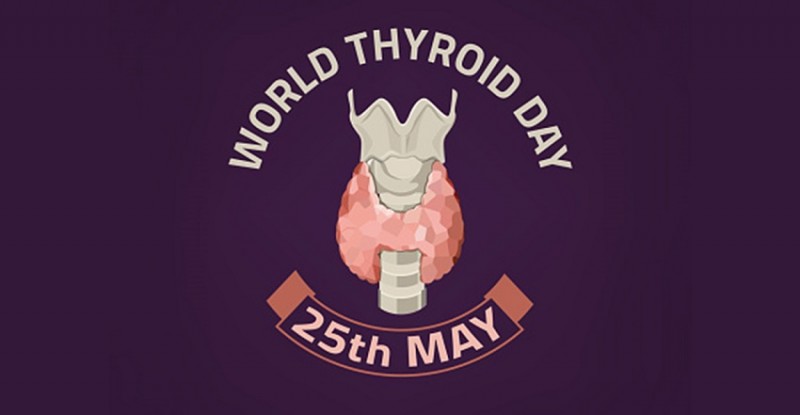
As we approach World Thyroid Day on May 25th, it's important to recognize the vital role the thyroid gland plays in our overall health. Situated in the neck, this small butterfly-shaped organ regulates metabolism, energy production, and hormone balance. Thyroid issues can significantly impact daily life if left undiagnosed and untreated. Understanding the early warning signs and symptoms is crucial for timely intervention and effective management. Here, we explore five key indicators that may suggest thyroid problems, empowering you to take charge of your thyroid health.
The thyroid gland, a small butterfly-shaped organ located in the front of the neck, plays a crucial role in regulating metabolism, energy production, and overall hormonal balance. Thyroid issues can have a profound impact on health if left undiagnosed and untreated. Here are five early warning signs and symptoms that could indicate thyroid problems:
Unexplained Weight Changes: One of the most noticeable signs of thyroid issues is unexplained weight gain or loss. An underactive thyroid (hypothyroidism) can slow down metabolism, leading to weight gain, while an overactive thyroid (hyperthyroidism) can speed up metabolism, causing unexpected weight loss.
Fatigue and Weakness: Feeling excessively tired or weak, even after a full night's sleep, can be an early indicator of thyroid problems. Hypothyroidism often results in fatigue and a lack of energy because the body's metabolism slows down. Conversely, hyperthyroidism can cause muscle weakness and fatigue due to an overactive metabolism.
Mood Changes and Mental Health Issues: Thyroid imbalances can affect mood and mental health. Hypothyroidism is commonly associated with symptoms of depression, including persistent sadness, low energy, and difficulty concentrating. Hyperthyroidism, on the other hand, can lead to anxiety, irritability, and nervousness.
Changes in Heart Rate: Thyroid hormones directly affect the heart rate. Hypothyroidism can cause a slower heart rate (bradycardia), while hyperthyroidism can lead to a faster heart rate (tachycardia) or irregular heartbeat (arrhythmia). Monitoring your pulse regularly can help detect these changes.
Swelling in the Neck: A visible swelling or enlargement in the neck area, known as a goiter, can be a sign of thyroid issues. This swelling occurs when the thyroid gland becomes enlarged due to hormonal imbalances, iodine deficiency, or the presence of nodules or tumors.
Recognizing these early warning signs and symptoms of thyroid issues is crucial for timely diagnosis and treatment. If you experience any of these symptoms, it is essential to consult with a healthcare provider. Proper
Recognizing these early warning signs and symptoms of thyroid issues is crucial for timely diagnosis and treatment. If you experience any of these symptoms, it is essential to consult with a healthcare provider. Proper testing and evaluation can help determine whether thyroid dysfunction is the cause, allowing for appropriate management and improved health outcomes. Early detection and treatment can make a significant difference in effectively managing thyroid-related health issues.
As we approach World Thyroid Day on May 25th, let's raise awareness about thyroid health and encourage everyone to pay attention to their body's signals. Stay informed, stay healthy!
World Thyroid Awareness Day: How to Manage Thyroid Health
Feeling Tired Despite Adequate Sleep? Don't Overlook This Reason